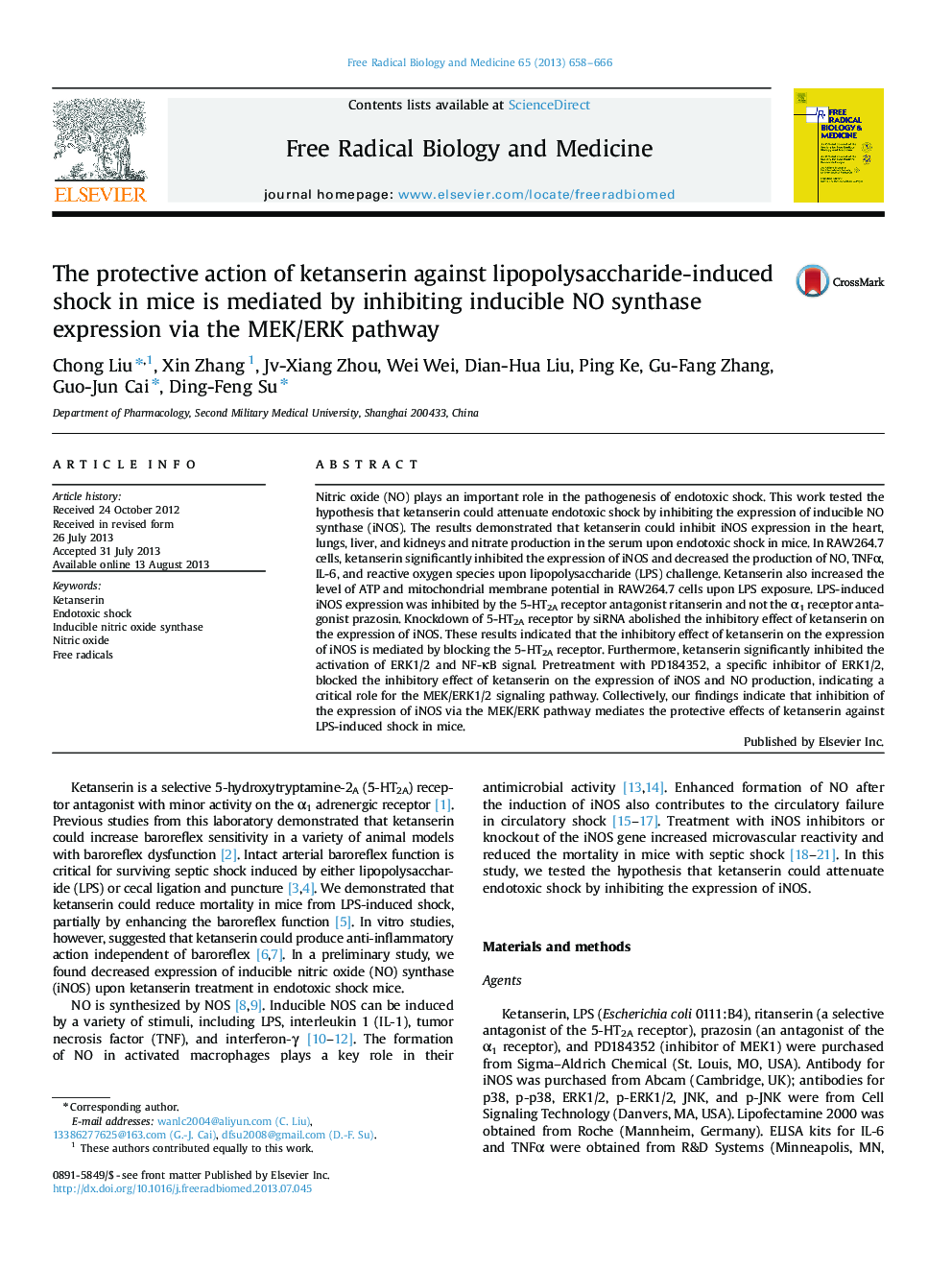| Article ID | Journal | Published Year | Pages | File Type |
|---|---|---|---|---|
| 8271695 | Free Radical Biology and Medicine | 2013 | 9 Pages |
Abstract
Nitric oxide (NO) plays an important role in the pathogenesis of endotoxic shock. This work tested the hypothesis that ketanserin could attenuate endotoxic shock by inhibiting the expression of inducible NO synthase (iNOS). The results demonstrated that ketanserin could inhibit iNOS expression in the heart, lungs, liver, and kidneys and nitrate production in the serum upon endotoxic shock in mice. In RAW264.7 cells, ketanserin significantly inhibited the expression of iNOS and decreased the production of NO, TNFα, IL-6, and reactive oxygen species upon lipopolysaccharide (LPS) challenge. Ketanserin also increased the level of ATP and mitochondrial membrane potential in RAW264.7 cells upon LPS exposure. LPS-induced iNOS expression was inhibited by the 5-HT2A receptor antagonist ritanserin and not the α1 receptor antagonist prazosin. Knockdown of 5-HT2A receptor by siRNA abolished the inhibitory effect of ketanserin on the expression of iNOS. These results indicated that the inhibitory effect of ketanserin on the expression of iNOS is mediated by blocking the 5-HT2A receptor. Furthermore, ketanserin significantly inhibited the activation of ERK1/2 and NF-κB signal. Pretreatment with PD184352, a specific inhibitor of ERK1/2, blocked the inhibitory effect of ketanserin on the expression of iNOS and NO production, indicating a critical role for the MEK/ERK1/2 signaling pathway. Collectively, our findings indicate that inhibition of the expression of iNOS via the MEK/ERK pathway mediates the protective effects of ketanserin against LPS-induced shock in mice.
Related Topics
Life Sciences
Biochemistry, Genetics and Molecular Biology
Ageing
Authors
Chong Liu, Xin Zhang, Jv-Xiang Zhou, Wei Wei, Dian-Hua Liu, Ping Ke, Gu-Fang Zhang, Guo-Jun Cai, Ding-Feng Su,
